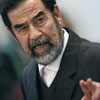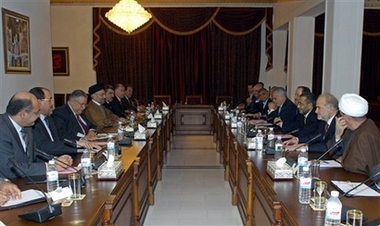Bush to go overseas again for key talks
(AP)Updated: 2006-11-27 09:28
Bush's meeting with the Iraqi prime minister will be the first time the two have met since al-Maliki's visit to Washington in late July. They also met during Bush's unannounced visit to Baghdad in June.
| Special
coverage: Iraq After War |
 | |
| Related
readings: Bush keeps plans to meet with Iraqi PM |
 |
Conditions have deteriorated since those meetings, and Bush is pondering whether to decrease or increase the 140,000 US troops now in Iraq. The president is awaiting recommendations from a top-to-bottom Pentagon review and from a blue-ribbon bipartisan study group headed by former Secretary of State James A. Baker III and Democratic Rep. Lee Hamilton of Indiana.
The assassination in Lebanon last week will make it even harder for Bush to solicit the help of Syria and Iran in stabilizing Iraq, as many political figures in the US and abroad have recommended.
The Bush-al-Maliki meeting was widely seen as an attempt by Bush to signal that the US still was engaged in an effort to find a solution to the spiraling violence in Iraq after more than three years and eight months - longer than the US involvement in World War II, as of Sunday.
"Sometimes, in the Middle East, you do diplomacy just to keep things from getting worse," said Michael O'Hanlon, a foreign policy analyst at the Brookings Institution.
Bush decided to go ahead with the meeting despite the opposition of some prominent Shiites in Iraq. Ahead of Bush's visit, Vice President Dick Cheney went to Saudi Arabia over the weekend in hopes of enlisting that government's help in involving more Arab countries in a regional solution.
The president was under pressure at home both from Democrats and some Republicans to take a new direction in Iraq.
"Changes are going to have to occur," Sen. Trent Lott, R-Miss., the incoming No. 2 GOP leader in the Senate, told "Fox News Sunday."
 | 1 | 2 | 3 |
|
||
|
||
|
|